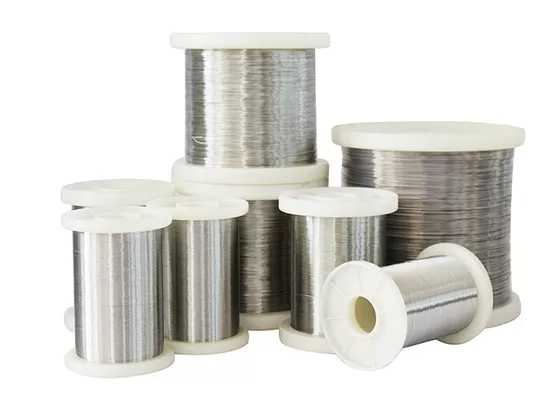Nickel-chromium alloys (NiCr alloys) are metal alloys composed primarily of nickel (Ni) and chromium (Cr) that have excellent resistance to high temperatures, oxidation and corrosion. These properties make it very popular for many industrial applications, especially in high temperature environments.

Properties of NiCr alloys
High Temperature Strength: NiCr alloys maintain high strength at high temperatures, making them suitable for use in high temperature environments.
Oxidation Resistance: Excellent oxidation resistance at high temperatures, preventing surface oxidation and corrosion.
Corrosion resistance: Exhibits good corrosion resistance to many acidic and alkaline environments.
Resistive Properties: Has a high electrical resistivity, making it suitable for use in electric heating elements.
Mechanical Properties: Good workability and ductility.
Classification of NiCr alloys
According to different compositions and applications, NiCr alloys are mainly divided into the following categories:
NiCr 20/80 ( Nichrome 80/20): Containing about 80% nickel and 20% chromium, they are mainly used for electric heating elements due to their high resistance and high temperature properties.
NiCr 60/15 (Nichrome 60/15): contains approximately 60% nickel and 15% chromium and is commonly used in lower temperature electric heating applications.
NiCr Alloy 600: contains approximately 72% nickel and 14-17% chromium, has good oxidation and corrosion resistance and is suitable for high temperature environments.
NiCr Alloy 625: Containing approximately 58% nickel and 20-23% chromium, with the addition of molybdenum and niobium to provide higher strength and corrosion resistance, widely used in marine and chemical equipment.
Applications for NiCr alloys
Due to their excellent properties, NiCr alloys have a wide range of applications in the following fields:
Electric heating elements: such as heating wires and resistance bands in electric furnaces, ovens and industrial heaters.
Aerospace: Used in the manufacture of turbine engine components and high-temperature structural materials due to their high-temperature strength and oxidation resistance.
Automotive industry: for exhaust systems and high temperature sensors.
Chemical Processing: Used in the manufacture of corrosion-resistant equipment such as reactors, pipelines and heat exchangers to handle corrosive media.
Nuclear industry: used as structural material in nuclear reactors due to its high temperature resistance and radiation properties.
Metal heat treatment: used in the manufacture of components and accessories for heat treatment furnaces, such as annealing and quenching furnaces.
Electronic industry: used in the manufacture of resistors, thermocouples and other electronic components.
Other applications
Household appliances: e.g. heating elements in electric water heaters, toasters and irons.
Glass manufacturing: Heating elements used in glass furnaces and glass forming equipment.
Medical equipment: used in some high-temperature sterilisation equipment and heat treatment devices.
NiCr alloy has become an important material in many industrial fields due to its excellent performance in high temperature and corrosive environments.


